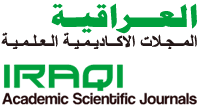Dealing with animals in the Umayyad era (An analytical historical study)
Abstract
This study aims to shed light on one of the civilizational dimensions of the Arab-Islamic heritage, which is dealing with animals in the Umayyad era, meaning here the Damascene Umayyad era extending from during which the Islamic world extended from China to France, and the Umayyad era in Andalusia is not included in the study. The study highlights the aspects of the interest of the Umayyad caliphs, their entourage and the general public in animals, their dealing with their needs, the role they played in animals in this era economically, socially and religiously, people's view of them, and the considerations that paved the way for that view. The most prominent aspects of this interest are the establishment of zoos for the first time in Islamic countries, and the allocation of Islamic endowments to protect, treat and shelter animals. The phenomenon of allocating endowments to protect animals is one of the earliest civilizational measures in human history, if not the earliest. The study analyzes the economic, social and religious motives behind the interest in animals and their care, the most important of which are luxury and comfort, great interest in jihad and the conquest of countries, and the comprehensive civilizational renaissance in all aspects economically, socially and urbanly. It is known that agriculture was the backbone of the economy of the Islamic state, and agriculture depended heavily on animals


